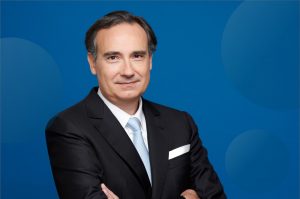Inventions and software developed by trainees within the framework of the company: the consequences of Order No. 2021-1658 of 15 December 2021
16 February 2022Creations made in-house generally raise the question of the ownership of the resulting rights.
The Intellectual Property Code (IPC) states as a general principle that the creator enjoys intangible property rights over their creations and that the right to patent an invention belongs to the inventor.
However, Articles L.113-9 and L.611-7 of the Intellectual Property Code (hereinafter CPI) make exceptions to this principle when the creation or invention was made within the framework of the company:
- The first of these texts attributes ab initio to the employer the economic rights in software and its documentation created by its employees in the course of their duties or on the instructions of that employer;
- The second also provides that the ownership of an invention made by an employee, in the context of an attributable mission or non-mission invention, reverts to the employer, either from the outset or through a mechanism of attribution of rights, depending on the circumstances of its making.
The enforcement of these provisions gave rise to legal and practical difficulties, in that they only covered "employed" creators and "salaried" or "civil servant" inventors. Trainees, on the other hand, were not covered by this regime.
Thus, an employer wishing to have ownership of an invention or software produced by a person with a status other than employee or public servant had to transfer the rights by contract.
The ordinance of 15 December 2021, which was issued in application of the law on research programming for the years 2021 to 2030, and which came into force the day after its publication in the JO, i.e. 17 December 2021, brings a change to this regime, with regard to software and inventions made by a natural person « hosted under an agreement by a public or private legal person carrying outresearch.».
Two new provisions are introduced into the Intellectual Property Code: Articles L.113-9-1 and L.611-7-1. The regime for these creations is similar to that for software and inventions made by
employees, without however aligning them completely.
1. Companies benefiting from the reform
Articles L.113-9-1 CPI and L.611-7-1 similarly refer to software and inventions made by a person hosted under an agreement by a « public or private legal person carrying out research. ».
The Ordinance does not define the notion of "carrying out research". It is therefore potentially very broad and likely to cover many companies, such as IT service providers or industrial companies that carry out research and development – even on an ad hoc basis. It will be up to the case law to delimit the notion.
The legal status of the host organisation is not limited either. It may be a legal person under private or public law. However, de facto companies without legal personality, self-employed persons, sole proprietorships, etc. are excluded..
2. The creations targeted
As its title indicates, this ordinance does not cover all intellectual property law. Only software and inventions (patented or not, as long as they are patentable) are concerned.
Other creations, such as valued works, designs, copyright (excluding software) are not concerned. The transfer of rights by contract therefore remains the rule in these areas.
The same applies to the architecture, structure and layout of databases, except when they constitute a collective work. As regards these databases, it should be remembered that Article L.341-1 of the IPC gives the producer of the database a sui generis right to the content of the database.
3. The creators and inventors concerned
The software or invention must, on the one hand, be created by natural persons who are not bound by a contract of employment and do not have the status of a public official. The Report to the President of the Republic refers to a certain number of people « in particular trainees, foreign doctoral students and emeritus professors or directors ». This list is only indicative.
On the other hand, the creator or inventor must be hosted within the framework of an agreement, cwhich may take the form of a classic internship agreement or an apprenticeship agreement or a temporary hosting, accommodation, secondment or other agreement.
The texts exclude a possible devolution of rights to the host company in the event that the creator or inventor is at the same time an employee or agent of a public or private law entity, unless otherwise agreed. It is therefore prudent to provide by agreement for the disposal of inventions and software made in such a context.
As regards the creator of software, it is required that they be placed under the authority of a manager of the host organisation. For an invention, such a placement under the authority of a manager is not required by the ordinance. This may be an omission on the part of the legislator, as the Report to the President indicates that "to fall within the scope of this Article L.611–17, such personnel" must be "hosted under an agreement, placed under the authority of a manager within the research structure".
This text does not appear to be intended to govern the ownership of software and inventions made by a company officer (non-employee), as being responsible for the structure, it would be difficult to imagine that he could be placed under his own authority.
4. The regime applicable to creations
The regime differs, depending on whether the creation concerned is software or an invention.
4.1 With regard to software – The new article L.113-9-1 CPI provides that the host organisation automatically holds the economic rights to the software and its documentation provided that :
- The creator is in a situation, vis-à-vis the structure, where they receive a "compensation"; The Report to the President of the Republic stresses that this may be financial and/or material; the question of whether this compensation could also be intellectual, educational or human remains open: in fact, it is common in public-private partnerships to take into account the respective contributions of the parties in terms of finance, equipment and human resources in order to determine the co-ownership shares of the IP rights;
- he/she is placed under the authority of a manager of the host organisation. This authority is characterised by the power of the person in charge to give orders/instructions and possibly to sanction the creator during the hosting period. This could be a laboratory director or a corporate officer.
The implementation of this scheme is optional, as the text provides that it applies "unless otherwise stipulated".
In practice, it will be advisable to pay compensation to interns, mentioning that it includes the compensation as defined by law, regardless of the duration of the internship, in order to prevent any dispute over the devolution of rights.
The judicial court of the registered office of the hosting body shall have exclusive jurisdiction to settle disputes relating to the application of this provision.
There is no regulatory text setting out the conditions for granting the software compensation.
4.2 Inventions – Article L.611-7-1 CPI, which is very similar to the provision applicable to employee inventions, provides for a devolution regime depending on the nature of the inventions made.
The so-called "mission" inventions,, i.e. those made by the inventor in the execution of an agreement including an inventive mission that corresponds to his actual missions, or studies and research that are explicitly entrusted to them, belong ab initio to the host organization. The inventor benefits from a "financial compensation" (instead of an "additional remuneration" for employees and agents), under conditions to be specified by decree.
The law does not specify whether or not this consideration includes the legal compensation due to trainees, for example, beyond a two-month internship. The question will arise as to whether or not a bonus in excess of the legal requirement will be necessary, but to avoid any disputes it will probably be recommended.
Like the employee or public servant inventor, the inventor also benefits from a right to information when the host organization files a patent application for the invention. If companies do not implement means to inform trainee inventors after they have left the company, there is a risk that the limitation period for the action for payment of the financial compensation may not start running.
Conversely, the non-employee inventor is now obliged to declare their invention, with all the necessary information for its classification. In concrete terms, host companies will have to integrate this new category of inventors into their internal invention declaration process.
Finally, the foreign trainee/doctoral student/professor will now have a legal obligation to refrain from any disclosure that could compromise a patent application. In doing so, it will remain prudent to alert the latter to this obligation, so as not to risk compromising the novelty of the patented invention in the event of untimely disclosure.
Other inventions, known as "off-mission" inventions, belong to the inventor. Nevertheless, the host organisation may be granted the ownership or the use of the rights attached to the patent protecting the invention, when it has been made by the hosted person:
- in the performance of their duties and activities; unlike employees' inventions, the invention should not necessarily have been made during working time. Indeed, the sentence "in the course of the performance of their duties", which appears in the provision applicable to employee inventions, has not been included;
- or in the field of activities entrusted by the legal entity; unlike employee inventions, the invention should have been performed in the field of activities entrusted to the inventor and not in the field of activities of the company, which is broader;
- or by the knowledge or use of techniques or means specific to the latter, or of data provided by it.
The granting of ownership or enjoyment of the rights attached to the patent is subject to a time limit. It must take place "during the period of the hosting"; this period will often be fixed by the agreement binding the two parties. A difficulty of interpretation could arise if the invention is made during the hosting period, but is the subject of a patent application filed afterwards: provision should no doubt be made for the rights to the patent to be granted during the hosting period, even if the patent is filed later, or even never filed because it is protected by secrecy (for manufacturing processes in particular).
In addition, the inventor must obtain a fair price.
The implementation of this regime is also optional, the text specifying however in this case that it applies "in the absence of a more favourable stipulation" to the inventor. In other words, it is only possible to derogate from it by an agreement more favourable to the inventor.
It will be noted that the report to the President indicates that these provisions "align the framework of such a devolution with that applicable to employees and public servants and thus provide legal certainty to all stakeholders". However, we have seen that these new provisions are not exactly aligned with the regime for inventions by employees and public servants, which could give rise to some legal uncertainty.
Disputes arising from the application of this provision shall be brought before the competent patent court, i.e. the Paris Court of Justice or the National Commission for Employee Inventions (CNIS)..
A decree in the Council of State is expected to set the conditions for granting financial compensation for mission inventions and the procedures for granting ownership or use of non-mission inventions. It is likely that the regime will be very similar to the one currently in place for employee inventions in Articles R.611-11 et seq.
Companies falling within the scope of this reform are strongly advised to adapt the company agreements and/or conventions that bind them with their workforce of a status other than employee and public servant.
For more information, please contact our dedicated team and consult our website on the ready-to-use solutions developed by our firm as well as on the Focus on employee invention litigation.

Michel ABELLO
Managing Partner
michel.abello@abello-ip.com

Marie LIENS
Partner
Lawyer at the Paris Bar
Head of Litigation Department
marie.liens@abello-ip.com

Mathilde JUNAGADE
Lawyer at the Paris Bar
Litigation Department
mathilde.junagade@abello-ip.com